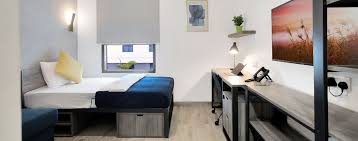Now Reading: UAE Student Accommodation: A Prime Investment Opportunity
-
01
UAE Student Accommodation: A Prime Investment Opportunity
UAE Student Accommodation: A Prime Investment Opportunity

Table of Contents
The United Arab Emirates, particularly Dubai and Abu Dhabi, has rapidly solidified its position as a burgeoning global education hub, attracting a burgeoning international student population.1 This consistent influx of students fuels a growing demand for quality, affordable, and purpose-built accommodation, presenting a compelling and often overlooked investment opportunity in the UAE real estate market. As universities expand and new institutions establish a presence, the need for well-located and student-centric housing solutions intensifies, promising stable rental yields and long-term capital appreciation for savvy investors.

Investing in student accommodation in the UAE transcends traditional residential buy-to-let models, offering unique advantages tied to the resilient nature of the education sector. Understanding the specific market dynamics, regulatory landscape, and management nuances is essential for unlocking the full potential of this niche, yet highly promising, investment avenue.
Why Invest in UAE Student Accommodation?

Several key drivers underpin the attractiveness of student accommodation investment in the UAE:
- Booming Education Sector: The UAE government has made significant strategic investments in higher education, establishing free zones like Dubai International Academic City (DIAC) and Dubai Knowledge Park.2 These zones host branches of prestigious international universities (e.g., Heriot-Watt University, University of Wollongong, Middlesex University Dubai, Amity University Dubai, Rochester Institute of Technology Dubai) and local institutions, drawing students from across the GCC, MENA region, and globally.3 This continuous growth in student enrollment ensures a steady and increasing demand for housing.
- Growing Student Population: Dubai’s student population is steadily rising, projected to reach significant numbers in the coming years.4 Many international students, in particular, seek independent living arrangements close to their campuses, away from family or traditional dormitory settings.5
- Strong Rental Yields: Student accommodation often generates higher rental yields compared to conventional residential properties. While typical Dubai residential yields might average 5-7%, purpose-built student accommodation (PBSA) or well-located apartments catering to students can achieve 7-10% or even higher, particularly for smaller units. This is often due to per-bed or per-room rental models, maximizing income from a single unit.
- Consistent Demand and Reduced Vacancy: The academic calendar provides a predictable rental cycle, minimizing void periods. Students typically sign leases for the entire academic year (9-12 months), offering stable and predictable cash flow. Even during summer breaks, some properties might remain occupied by summer school students or university staff.
- Resilience to Economic Downturns: Education is often considered a priority, even during economic fluctuations. This makes the student housing market more resilient compared to other real estate sectors, offering a stable and reliable asset class.
- Managed Investment Option: Many purpose-built student accommodation developments come with professional management services, handling tenant sourcing, rent collection, maintenance, and compliance.6 This makes it a relatively hands-off and passive income strategy, appealing to investors seeking minimal direct involvement.
- No Income Tax on Rental Income: For individual owners, the absence of personal income tax in the UAE means higher net rental income, further enhancing profitability.7
Types of Student Accommodation in the UAE

The student housing market in the UAE offers various options, each with distinct characteristics:
- Purpose-Built Student Accommodation (PBSA):
- These are dedicated, professionally managed student housing complexes designed specifically for student needs.8
- Features: Often include furnished rooms (single, shared, or studio), communal kitchens, study areas, lounges, gyms, swimming pools, laundry facilities, 24/7 security, and high-speed internet.9 They foster a vibrant student community.
- Investment Model: Investors can buy individual units or rooms within these developments, or acquire entire buildings. They are typically managed by specialized operators, providing a passive income stream.
- Examples: The Myriad Dubai (in DIAC), Uninest, Yugo Dubailand.10
- University-Managed On-Campus Dormitories:
- Some universities offer their own on-campus or university-affiliated housing.11
- Features: Convenience, proximity to classes, often includes meal plans, and strict university rules.
- Investment Relevance: Less direct investment opportunity for private investors, as these are typically managed by the institutions themselves, but their existence highlights unmet demand for off-campus options.
- Shared Apartments/Villas (Standard Residential):
- Many students, particularly those seeking more independence or budget-friendly options, rent rooms in shared apartments or villas in regular residential buildings.12
- Features: Can range from unfurnished to fully furnished, offering more space and flexibility than dorms.
- Investment Model: Investors purchase a standard residential apartment (e.g., 2 or 3-bedroom) and rent out individual rooms to students. This requires more active management from the owner or a general property management company.
- Considerations: Landlords must be aware of Dubai’s tenancy laws regarding shared accommodations and ensure building management permits such arrangements.13 Gender segregation rules may also apply in some residential areas.
- Studio or 1-Bedroom Apartments:
- Students with a higher budget or those prioritizing privacy often opt for their own studio or 1-bedroom apartments.
- Features: Offers complete independence, often in modern, well-serviced buildings.14
- Investment Model: A straightforward buy-to-let model, where the investor rents out the entire unit to a single student or a couple.
- Target Audience: Mature students, post-graduates, or those valuing privacy.
Key Factors for Successful Investment
- Proximity to Universities: This is the most critical factor. Properties within walking distance or a short public transport commute (metro, bus) to major university hubs (like Academic City, Knowledge Park, Dubai Silicon Oasis, Jumeirah Lakes Towers) will always be in high demand.
- Amenities: Students value amenities such as high-speed internet, study areas, common lounges, gyms, swimming pools, and on-site laundry facilities. Furnished units are highly preferred.15
- Affordability: While Dubai is known for luxury, students are often budget-conscious. Offering competitive rental rates without compromising on quality is key.
- Safety and Security: Parents and students prioritize a secure living environment. 24/7 security, CCTV, and controlled access are non-negotiable.16
- Community Vibe: Especially in PBSA, a strong community atmosphere with social events and communal spaces can be a significant draw.17
- Management: Decide between self-managing (more hands-on, potentially higher net returns) or using a professional student accommodation management company (less hassle, more passive, but with management fees).
Promising Locations for Student Accommodation Investment
Based on proximity to educational institutions and student demand, key areas in Dubai include:
- Dubai International Academic City (DIAC) / Dubai Knowledge Park: The epicenter of higher education, ideal for PBSA and shared apartments.18
- Dubai Silicon Oasis (DSO): A tech-centric free zone with residential options, close to DIAC, offering more affordable modern apartments.
- Jumeirah Lake Towers (JLT): Well-connected by metro, with a vibrant community and a mix of apartments suitable for students.
- Al Barsha South / Arjan: Areas offering newer developments and good connectivity to educational zones.
- Discovery Gardens: Offers more budget-friendly options with good access to academic zones.19
Regulations and Compliance

While there aren’t specific “student housing licenses” per se for standard residential properties, investors must adhere to general rental regulations:20
- Ejari Registration: All rental contracts in Dubai must be registered with Ejari to be legally binding and recognized by the DLD.21
- Tenancy Laws: Adherence to RERA (Real Estate Regulatory Agency) tenancy laws regarding contract terms, rent increases, and tenant rights.22
- Building Regulations: Ensure the property complies with all building and safety codes.23
- Co-habitation Rules: For shared accommodations, ensure compliance with co-habitation laws. While recent reforms have relaxed rules for unmarried couples, landlords should be aware of the specific building or community rules regarding shared living arrangements and gender separation, especially for students.
- Visa Status of Tenants: Students will typically have a student visa, which must be valid.24
For purpose-built student accommodation (PBSA), the developer and operator are responsible for obtaining specific operational licenses from relevant authorities (e.g., Dubai Municipality, Civil Defense, and potentially specific licenses from the education authorities if they offer integrated services).
Returns and Challenges
Potential Returns:
- Higher Yields: As noted, student properties generally offer higher rental yields than generic residential units.
- Consistent Occupancy: Predictable academic cycles lead to high occupancy rates, especially for well-located and managed properties.25
- Capital Appreciation: As Dubai’s education sector expands and population grows, the value of strategically located student housing can appreciate over time.
Challenges:
- Tenant Turnover: While leases are annual, the turnover rate can be higher than long-term rentals, requiring more frequent cleaning, minor repairs, and re-tenanting efforts.
- Wear and Tear: Students can sometimes lead to more wear and tear on properties, necessitating robust furnishings and regular maintenance.26
- Seasonal Vacancy: Despite annual contracts, some units might remain vacant during long summer breaks if not leased for summer programs.
- Competition: The market is growing, leading to increased competition, particularly in popular academic zones.
- Management Intensity: Even with management companies, overseeing a student property requires responsiveness to student needs.
- Regulatory Nuances: Understanding the specific rules for student living, especially regarding shared accommodations, is important.
Outlook for 2025-2026
The outlook for student accommodation investment in the UAE remains exceptionally positive. The government’s continued focus on positioning the UAE as a global knowledge economy and a hub for higher education, coupled with an expanding young population and a strong inflow of international students, will sustain robust demand. The increasing preference for purpose-built student accommodation that offers community and comprehensive amenities will likely drive further development in this niche.
Investors who conduct thorough due diligence, select properties in prime locations near universities, understand the regulatory framework, and consider professional management are well-positioned to capitalize on the attractive rental yields and long-term growth potential offered by student accommodation in the UAE. This sector presents a stable and promising addition to a diversified real estate portfolio.
WATCH MORE:https://www.youtube.com/watch?v=l8h8OhEW_Mg&vl=hi
READ MORE: UAE Retirement Homes: Discover Your Golden Years Oasis






















